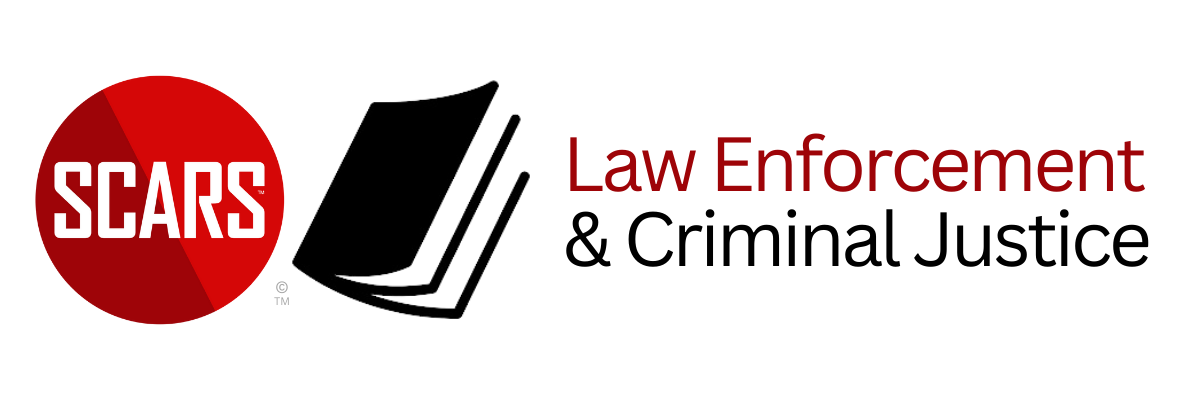Replacing the UK’s Action Fraud for Inaction Against Scams
Reviewing the Progress Made in the UK to Replace the City of London Police’s Action Fraud
Primary Category with link to search
Authors:
• SCARS Editorial Team – Society of Citizens Against Relationship Scams Inc.
• Alexander Martin, The Record

Replacement for the City of London’s Action Fraud, UK’s Scam, Fraud, and Cybercrime Reporting Service, delayed again until 2025
According to the Record – being reprinted in the public interest – source link above
Action Fraud
The launch date for the repeatedly delayed replacement service for Action Fraud, the much-criticized reporting center for fraud and financially motivated cybercrime in Britain, has again been pushed back, a senior police officer has confirmed to Recorded Future News.
The likely date will be sometime in the spring of 2025, according to Nik Adams, the temporary assistant commissioner at the City of London Police.
In its current form Action Fraud, which is run by the City of London Police, has been described as “not fit for purpose” by the House of Commons Justice Committee amid a surge in the levels of that crime affecting people across the country.
The Public Accounts Committee stated it was “seriously concerned that the failures of Action Fraud in supporting victims of fraud has earned it the nickname ‘Inaction Fraud,’” and echoed the Justice Committee’s findings that the levels of fraud were being driven by shortcomings across the whole of the criminal justice system.
A replacement service aiming to provide more intelligence capabilities to police following incidents of fraud, and better communications to victims who report into the platform, was scheduled to be launched this April. However, in February, officials admitted they had “not been able to achieve” that deadline.
A spokesperson for the City of London Police then said the new service was “planned to go live in 2024, but we have not set a date.”
That broad target of 2024 has now been dropped according to Adams, who told Recorded Future News the force was “currently working to a timeline of the first quarter of 2025.”
Adams then clarified this was the first quarter of the financial year, rather than the calendar year: “So roundabout April or May time 2025 for the formal launch of the new service.”
City of London Police did not explain the cause of the delay. In July, a spokesperson said that work to replace Action Fraud “has progressed in many areas, including essential technical projects that will allow crime reports to be sent out to police forces for consideration for investigation in a timelier and more efficient manner.”
Two companies have been contracted to deliver the replacement service, PwC and Capita, neither of which provided an explanation for the latest delay when asked. A financial services company, TORI, was also recently awarded a £1 million contract “to deliver the technical requirements needed for the new service.”
TORI and PwC declined to comment when contacted by Recorded Future News. A spokesperson for Capita said: “We are committed to delivering an outstanding service for victims of fraud. We’re working closely with all parties to deliver an effective and efficient system.”
Inaction Fraud
The lack of public confidence in Action Fraud has put a significant amount of pressure on City of London Police — the force based in London’s ancient financial district, and the national lead force on fraud — to deliver an effective replacement service. As the platform depends on public reporting, if the public doesn’t see any benefit to reporting fraud then the replacement simply won’t work.
“Given the history of Action Fraud, we want to absolutely get right the new system before we launch it, because nothing [would be] worse … [than] if people lose confidence in it from the outset,” Nik Adams told a parliamentary committee earlier this year.
The new service will provide a “dramatic change in the interface between the public and how they supply information,” Adams said, responding to a question from Recorded Future News.
“It will be easier for people to upload [additional] information [to their reports, including] metadata that might be attached to emails and communications that they’ve received, as well as screenshots and other images.
“And the strength of the tool that will sit behind the new Action Fraud service will be much more efficient at analyzing that [data], finding the links and connections between things and drawing out the intelligence value,” he said.
Jonathan Frost, a fraud and cybercrime consultant who worked at the City of London Police’s national fraud intelligence bureau for more than a decade, said that centralizing fraud reporting was “fundamentally the right model.”
Frost argued the service had “historically suffered from underfunding,” although he acknowledged “that does not justify nor explain the continued poor outcomes.”
“To date the service has been unable to produce a comprehensive intelligence picture due to the absence of a properly formulated intelligence collection plan. Until that is addressed and it is recognised that the cyber element of most fraud crimes is the key requirement, it is likely that the system as a whole will continue to focus on the consequences of fraud (money laundering) rather than the causes of it,” Frost said.
The new system will also keep the public informed about their cases, allowing them to monitor what’s happening with their individual crime reports and providing feedback about whether the material they’ve provided has an intelligence value or is being focused on with an ongoing investigation.
Nik Adams said that encouraging people to report was critical. He said the force was “nervous about, later this year with the advent of the Payment Services Regulator’s requirements on all banks to reimburse victims, that the victim focus will be on reporting to their bank. … I worry that we will see a reduction in people coming forward reporting to Action Fraud.”
Ensuring that victims report is a priority behind the design of the new project, said Adams. Users will receive feedback, even if it takes several years, about whether the information they have shared has been connected to a larger investigation. “There’s real value in us being able to demonstrate the importance of reporting and the impact that people can have,” he said.
The new service will be rebranded, although a name is yet to be selected. It is currently known as the Fraud and Cyber Crime Reporting and Analysis System (FCCRAS) by officials.
According to the City of London Police’s latest budget — issued before the £1m contract was awarded to TORI and when the project was expected to be completed this year — the total estimated total cost for FCCRAS was just over £31 million ($39 million) with an overspend of just £52,000 ($66,000). More recent figures are unavailable.
Please Rate This Article
Please Leave Us Your Comment
Also, tell us of any topics we might have missed.
Thank you for your comment. You may receive an email to follow up. We never share your data with marketers.
-/ 30 /-
What do you think about this?
Please share your thoughts in a comment above!
-/ 30 /-
What do you think about this?
Please share your thoughts in a comment above!
ARTICLE RATING
TABLE OF CONTENTS
CATEGORIES
MOST POPULAR COMMENTED ARTICLES
POPULAR ARTICLES
U.S. & Canada Suicide Lifeline 988
![NavyLogo@4x-81[1]](https://scamsnow.com/wp-content/uploads/2025/04/NavyLogo@4x-811.png)
ARTICLE META
WHAT PEOPLE ARE TALKING ABOUT LATEST SITE COMMENTS
See Comments for this Article at the Bottom of the Page
on Transference And Emotional Danger After The Scam – 2024: “Thank you for the kind but firm reminder that the person in the stolen profile photo has their own life.…” Jul 9, 01:26
on ‘Mental Defeat’ – The Unique Condition Of Giving Up – 2024: “Thank you for another great article. I can see from this article that mental defeat would be debilitating to a…” Jul 9, 00:49
on Trust: Romance Scams Betrayal And Scam Victims – 2024: “This provided valuable insight that I can identify with” Jul 8, 16:44
on A Scam Victim in Extreme Distress – Stopping the Pain – 2024: “Your trust issues are very understandable. We are very sorry this happened to you. We suggest that you contact an…” Jul 8, 14:42
on A Scam Victim in Extreme Distress – Stopping the Pain – 2024: “My online counselors advised me to check myself in. I went to the hospital because I was suicidal. After I…” Jul 8, 13:44
on Scam Victim Catastrophizing Making Recovery Difficult 2024: “Excellent article on catastrophizing. I can understand how this could take a person down a rabbit warren of never ending…” Jul 8, 12:12
on The Self-Pity Trap & How To Overcome It – 2023 – [UPDATED 2025]: “I am not in the habit of feeling sorry for myself. After the deception, although it was not easy at…” Jul 8, 11:49
on Pride – A Dual Edged Sword For Scam Victims – 2023 [UPDATD 2024]: “Looking back over my life I have seen how pride has impacted me both positively and negatively. However the negative…” Jul 8, 09:08
on The Self-Pity Trap & How To Overcome It – 2023 – [UPDATED 2025]: “I felt self-pity while the enormity of my financial loss washed over me like a tsunami. The self-pity lasted only…” Jul 7, 18:55
on The Uniqueness Of Scam Victims Or Fraud Victims – 2024: “unfortunately all true. It is highly stressful dealing with the aftermath. I am being sued for the money I borrowed…” Jul 6, 12:50
on Scam Victims & Mental Health Blaming – 2023 [UPDATED 2025]: “For most of my life words have defeated me, made me feel insignificant, unwanted, unneeded. For this reason it is…” Jul 5, 13:36
on Substance Abuse Susceptibility And Scam Victims – 2024: “It is understandable how some would feel that alcohol or substance abuse would be helpful in handling their feelings after…” Jul 1, 20:36
on Scam Victims Use Work To Avoid Healing: “The last 6 years have been the most difficult of my life. The pandemic, having both parents in the hospital…” Jun 29, 18:38
on Entitlement Mentality And How Scam Victims Often Lose Their Path To Recovery – 2024: “Thank you for this discussion of entitlement. I can see from the descriptions listed that I have not felt entitlement.…” Jun 29, 18:22
on Samurai Wisdom and Rituals for Clearing the Mind After Scam Trauma – 2025 – [VIDEOS]: “A great guide on how to move forward in our recovery process with a calm mind, cleansed on an ongoing…” Jun 28, 07:34
on Delayed Gratification and Patience in Scam Victim Recovery – 2025 – [VIDEOS]: “We want to recover quickly and… we make new mistakes. How not to speed up the recovery process, how to…” Jun 28, 06:41
on The Unique Injury Of Betrayal Trauma On Scam Victims – 2024: “Primarily because you did not see it coming” Jun 27, 23:57
on Changes In A Scam Victim’s Life: “I really detest the way my trust in others has been affected by the scamming I went through. I used…” Jun 27, 14:47
on The Unique Injury Of Betrayal Trauma On Scam Victims – 2024: “Betrayal Trauma is the worst feeling ever. Why does it seem so much worse when a scammer does that to…” Jun 27, 14:34
Important Information for New Scam Victims
Please visit www.ScamVictimsSupport.org – a SCARS Website for New Scam Victims & Sextortion Victims
SCARS Institute now offers a free recovery program at www.SCARSeducation.org
Please visit www.ScamPsychology.org – to more fully understand the psychological concepts involved in scams and scam victim recovery
If you are looking for local trauma counselors, please visit counseling.AgainstScams.org
If you need to speak with someone now, you can dial 988 or find phone numbers for crisis hotlines all around the world here: www.opencounseling.com/suicide-hotlines
Statement About Victim Blaming
Some of our articles discuss various aspects of victims. This is both about better understanding victims (the science of victimology) and their behaviors and psychology. This helps us to educate victims/survivors about why these crimes happened and not to blame themselves, better develop recovery programs, and help victims avoid scams in the future. At times, this may sound like blaming the victim, but it does not blame scam victims; we are simply explaining the hows and whys of the experience victims have.
These articles, about the Psychology of Scams or Victim Psychology – meaning that all humans have psychological or cognitive characteristics in common that can either be exploited or work against us – help us all to understand the unique challenges victims face before, during, and after scams, fraud, or cybercrimes. These sometimes talk about some of the vulnerabilities the scammers exploit. Victims rarely have control of them or are even aware of them, until something like a scam happens, and then they can learn how their mind works and how to overcome these mechanisms.
Articles like these help victims and others understand these processes and how to help prevent them from being exploited again or to help them recover more easily by understanding their post-scam behaviors. Learn more about the Psychology of Scams at www.ScamPsychology.org
SCARS INSTITUTE RESOURCES:
If You Have Been Victimized By A Scam Or Cybercrime
♦ If you are a victim of scams, go to www.ScamVictimsSupport.org for real knowledge and help
♦ Enroll in SCARS Scam Survivor’s School now at www.SCARSeducation.org
♦ To report criminals, visit https://reporting.AgainstScams.org – we will NEVER give your data to money recovery companies like some do!
♦ Follow us and find our podcasts, webinars, and helpful videos on YouTube: https://www.youtube.com/@RomancescamsNowcom
♦ Learn about the Psychology of Scams at www.ScamPsychology.org
♦ Dig deeper into the reality of scams, fraud, and cybercrime at www.ScamsNOW.com and www.RomanceScamsNOW.com
♦ Scam Survivor’s Stories: www.ScamSurvivorStories.org
♦ For Scam Victim Advocates visit www.ScamVictimsAdvocates.org
♦ See more scammer photos on www.ScammerPhotos.com
You can also find the SCARS Institute on Facebook, Instagram, X, LinkedIn, and TruthSocial
Psychology Disclaimer:
All articles about psychology and the human brain on this website are for information & education only
The information provided in this and other SCARS articles are intended for educational and self-help purposes only and should not be construed as a substitute for professional therapy or counseling.
Note about Mindfulness: Mindfulness practices have the potential to create psychological distress for some individuals. Please consult a mental health professional or experienced meditation instructor for guidance should you encounter difficulties.
While any self-help techniques outlined herein may be beneficial for scam victims seeking to recover from their experience and move towards recovery, it is important to consult with a qualified mental health professional before initiating any course of action. Each individual’s experience and needs are unique, and what works for one person may not be suitable for another.
Additionally, any approach may not be appropriate for individuals with certain pre-existing mental health conditions or trauma histories. It is advisable to seek guidance from a licensed therapist or counselor who can provide personalized support, guidance, and treatment tailored to your specific needs.
If you are experiencing significant distress or emotional difficulties related to a scam or other traumatic event, please consult your doctor or mental health provider for appropriate care and support.
Also read our SCARS Institute Statement about Professional Care for Scam Victims – click here
If you are in crisis, feeling desperate, or in despair, please call 988 or your local crisis hotline.
More ScamsNOW.com Articles
A Question of Trust
At the SCARS Institute, we invite you to do your own research on the topics we speak about and publish. Our team investigates the subject being discussed, especially when it comes to understanding the scam victims-survivors’ experience. You can do Google searches, but in many cases, you will have to wade through scientific papers and studies. However, remember that biases and perspectives matter and influence the outcome. Regardless, we encourage you to explore these topics as thoroughly as you can for your own awareness.
















![scars-institute[1]](https://scamsnow.com/wp-content/uploads/2025/04/scars-institute1.png)
![niprc1.png1_-150×1501-1[1]](https://scamsnow.com/wp-content/uploads/2025/04/niprc1.png1_-150x1501-11.webp)

Leave a Reply